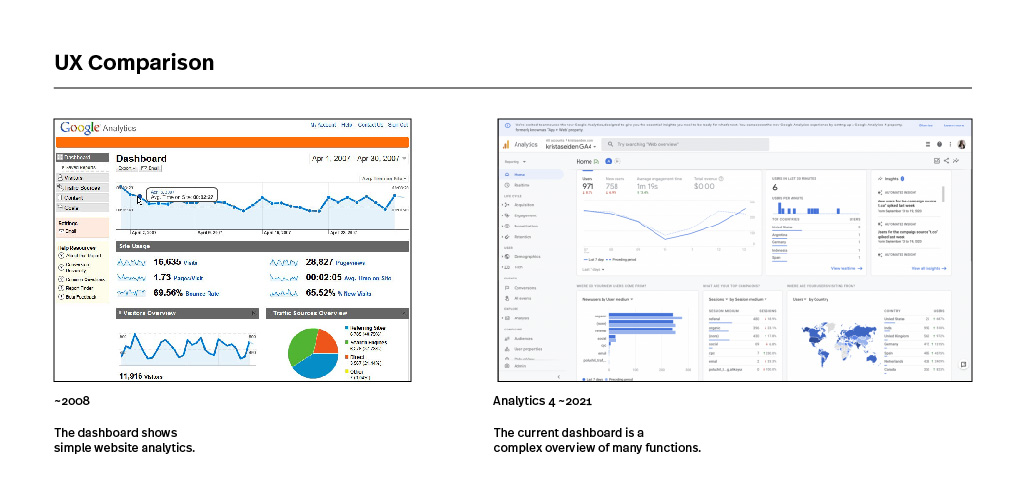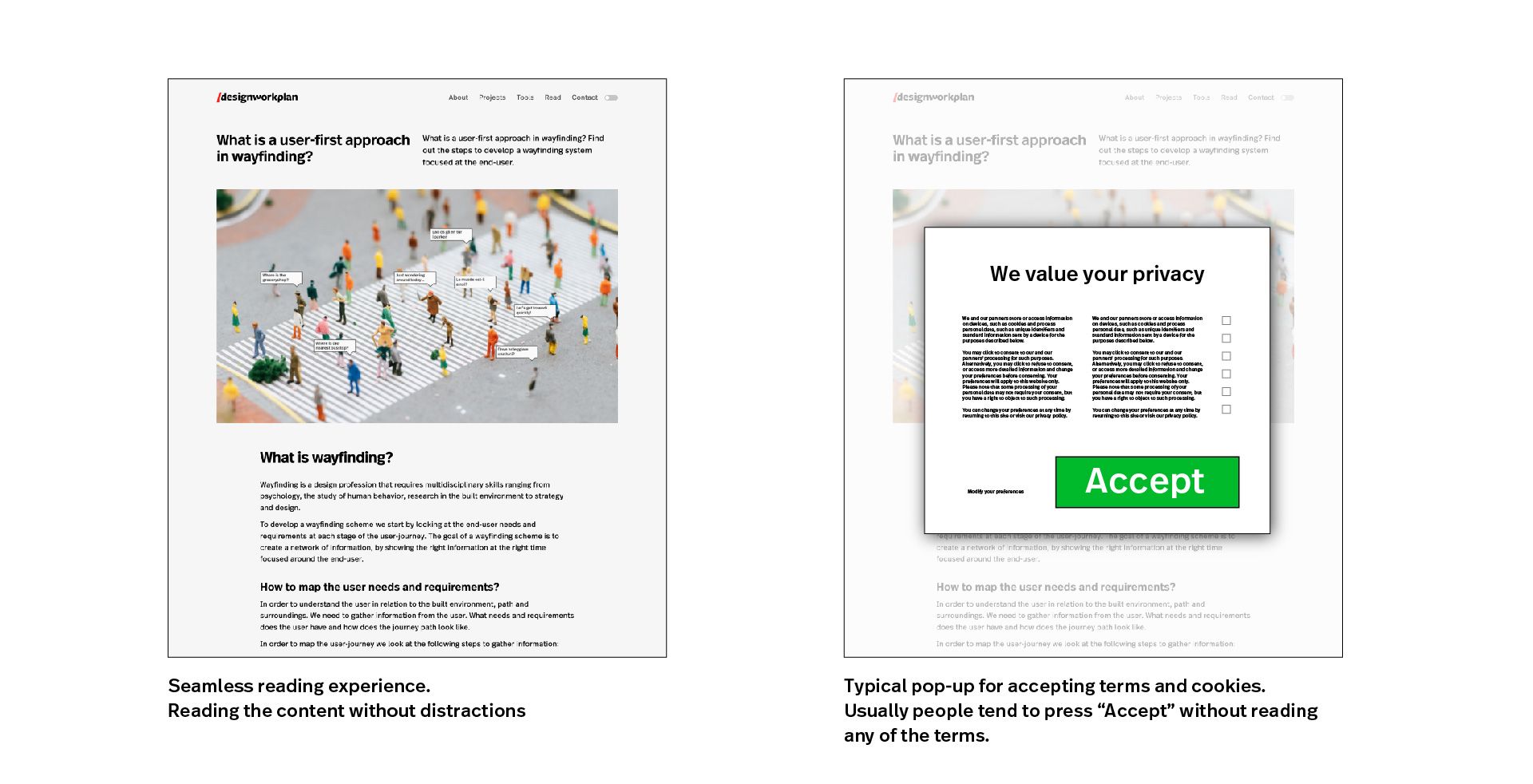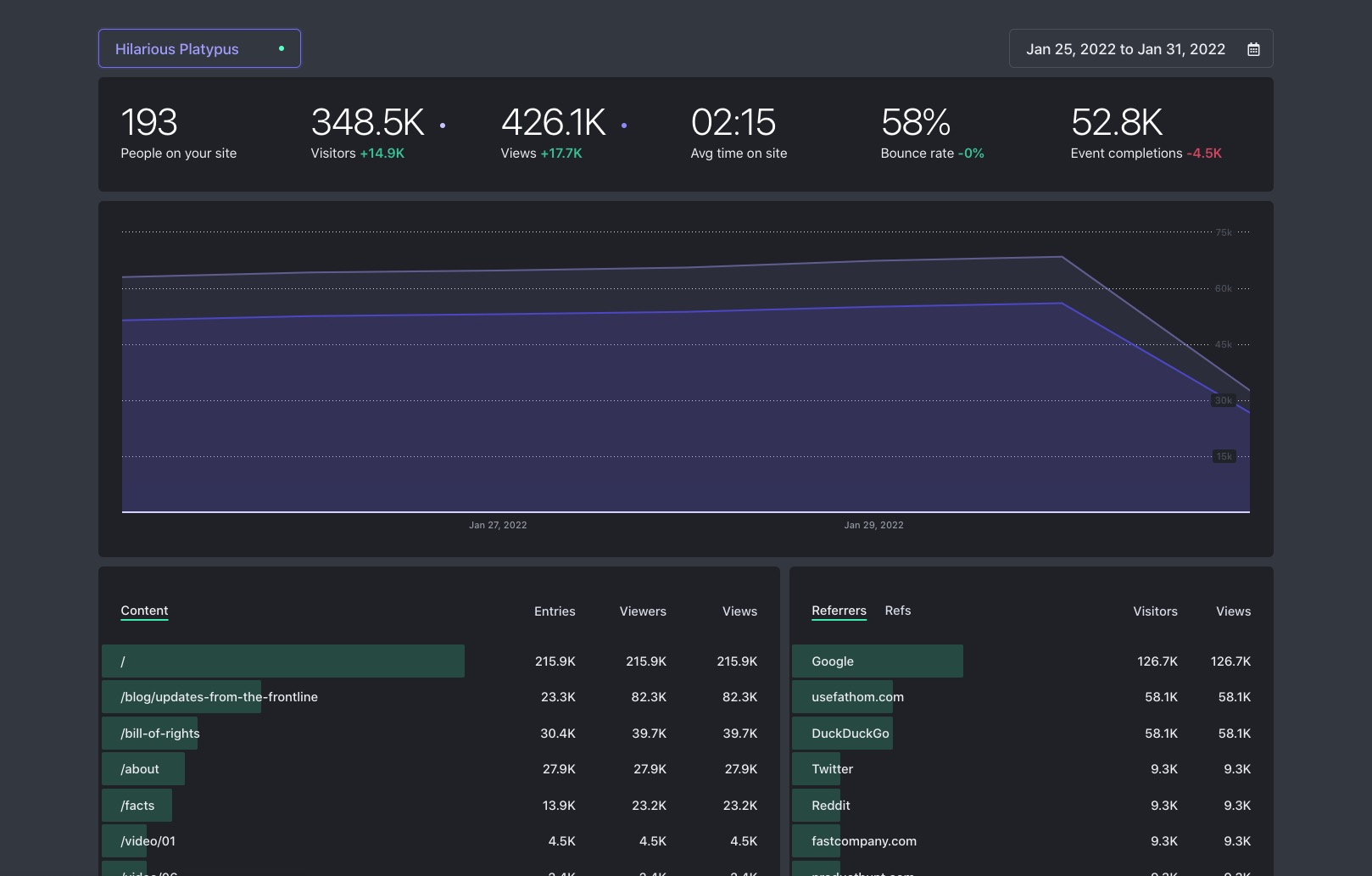Website tracking & addressing your privacy
We have been thinking about data privacy, collecting visitors data and GDPR regulation on our website. This is our switch from Google Analytics to Fathom.
On our website designworkplan we used Google Analytics for collecting visitors data. When we started the blog way back in 2008 it was a good way to find out which content viewers of our website liked and disliked. A user-friendly dashboard to find out important metrics related to viewers of the website.
Google Analytics gave us insights on popular pages and were people visited our website from. This allowed us to target those audiences more and as a result we gained traction to our (design) website. Our content evolves around design, typography and wayfinding. Wayfinding is a design niche that focusses at connecting people to information and environments.
If you want to learn more about wayfinding, please read our page Introduction to Wayfinding.
Over time Google Analytics grew in complexity to an extend we have a hard time understanding the metrics shown in the dashboards.
Google Analytics back to the future
In the beginning Google Analytics was plain and simple, the right fit for our design content. As a content creator we are interested in how visitors perceive information on our website. Information about popular pages, demographics and referral sources are meaningful for establishing an understanding of what visitors are looking for.

Privacy and data collection
Over time we realized Google used our collected data for their benefits. Although Google says to “never” sell any personal information. The collective gathered information through Google Analytics is an immense source of valuable information about browser behaviour online. Not only it provides information on topics people are interested in, it also gives information about reading time, bounce rates and related information people are interested in. Maybe Google doesn’t use the information gathered from our website, but sure it can create a broader sense of what people in general are interested in.
As Google remains to control most of the internet search queries and related internet services such as advertising. Google can combine Analytics and Adwords to maximize their profit ratio. In other words, we believe as Google has a tremendous amount of information from the Analytics part of their database. The Adwords part of Google will benefit from this information, as they are familiar with what people search for and what related information people would be interested in.
Our most popular posts on the blog
Over the years we have published many articles on the blog. Via our visitors data tracking we could see these are our most popular posts:
- A arrow symbol collection, with over 1M (Million) downloads! 56 Free Arrow Symbols & Icons
- The guide into color contrast for sign and wayfinding design. Signs and color contrast
- A free collection of 50 common used symbol signs. Symbol Sign Collection
Our series about typography did very well over the last years, including the following articles:
- An example collection of typeface usages with Arial. Arial is everywhere
- Another collection with FF Meta typeface examples FF Meta is everywhere
Our book series are popular with the following reviews:
- A comprehensive book about wayfinding by David Gibson. The Wayfinding Handbook
- The industry standard for learning about wayfinding by Per Mollerup. Wayfinding > Wayshowing
Over the years we have continued our writing, consider looking at our blog to learn more about wayfinding.
Seamless reading experience
We are wayfinding and information designers. Our core services evolve around information, people and places. Connecting information at the right time and place. As we are browsing the internet, the reading experiences are mostly dreadful. Pop-ups, reminders, boxes, ads, etc.

At our website we want people to enjoy our content, without having to read privacy policies and forcing visitors to click "Accept" buttons. We want to create a seamless reading experience without distractions.
The brilliant website How I Experience Web Today is a fantastic example of most browsing experiences today. So familiar, yet so disappointing experiences.
According to research the average internet user spends ~3 hours online every day, visiting anywhere from 5 up-tp 100 website each day. Imagine the time lost for accepting all those cookies each and every day.
Recently it came to our attention that Google Analytics is in conflicts with European regulations and is not fully GDPR complaint. In relationship to the cookie, accept privacy terms and UX issues it got us to rethink the analytics part of our website.
From past to present
As we want to comply to European guidelines regarding data collection and to create a seamless reading experience, we started to seek an alternative for Google Analytics.
As also found Google Analytics was found illegal in an Austrian court decision. The details of that decision can be found here
From here our search began looking for an alternative way to collect visitors data at our website. We have tried other different analytics services, which include:
- Matomo analytics, a self hosted analytics service. Comes with many features and is free to use. We have found installing the software and dashboard somewhat complicated to use.
- Statscounter, great alternative. The dashboard has a good UX design and the service has many features to track visitors behaviour. Statscounter is an anonymous web tracking service which is good to become GDPR compliant. The paid version starts at $19,- per month.
- Fathom, a very user friendly interface, cookie-free and GDPR proof with anonymous web tracking. Starting at $14,- per month. ($140,- p/y)
Our research was plain simple, trying out the services as mentioned above for ~14 days. The experiment gave us insights on what we wanted to see in our analytics, useful metrics, ease of use, GDPR free. As running websites is NOT our daily focus, we found out our needs are UX and ease of use based. Meaning a single dashboard solution, main metrics and great UX design. In our quest for the Google Analytics alternative we landed at Fathom Analytics.

Use Fathom Analytics
Our basic requirements are formulated as following:
- GDPR Proof and anonymous pageview tracking
- Fast loading script, by-passing ad blockers and no cookies
- Easy to use dashboard, in one overview
- Information about pages, average time on site/page and traffic sources
- Information about devices, browsers and countries
- Possibility to track specific actions or events on webpages (easy funnel)
- Track multiple websites in one dashboard/account
As we deploy multiple websites, a single dashboard solution is ideal to gain overview insights on performance.
Reading experience & privacy
Our website and content creation is focussed on providing niche information for design, typography and wayfinding. In our opinion Google Analytics has become a complex platform with too many functionalities. We understand that professional website creators and builders could use Google Analytics to its full potential. We simply want to put out great content and gather information about the visitors to our website.
Our goal is provide a visitor to our website a seamless reading experience and enjoying our content without annoying pop-ups or related privacy issues.
From now on forward we have disabled Google Analytics from our websites and are fully compliant with European regulation around collecting information from visitors on our website.
Fathom is a paid service which collects anonymous data from visitors on our websites. We are using a $140,- yearly plan for collecting visitors data from our websites.
Full disclosure
We work as a designers for Google Offices, where we develop and create wayfinding solutions for their visitors and employees. We respect Google for their vision and the way how they organize their workplaces, people and environments. At our website (designworkplan) we have chosen to use fathom for reasons stated in this article. We are not paid or sponsored by usefathom. If you want to support us, please use our affiliate link below.
Final thoughts
This post is different from our usual design content, we wanted to be fully transparant in the way how we collect visitors data from our websites. Consider thinking about the way you collect visitors data at your website(s).
If you are planning to use Fathom, consider using our referral link (highly appreciated) Use Fathom referral code CCPSXY